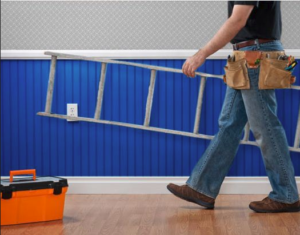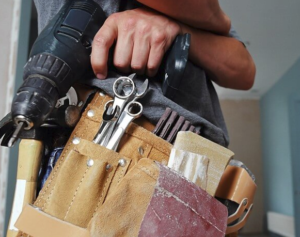Tenants And Contractor Repairs
When you own rental property, repairs are inevitable. Some things just break and sometimes your tenant is rough on the house.
Whether you have one repair or multiple repairs that need to be done on your rental home, you have to gain access to the property in order to make repairs.
Hopefully, your tenant is on board and is willing to allow your contractor to access the property without too much trouble. But, you may be forced to remember that tenants have jobs and lives which can interfere with their ability to meet contractor. It seems like there is always one tenant who has a problem letting your contractor into the home.
Alienating the tenant can lead to problems that last for years. Click To Tweet
I have found over the years that when you can, it is best to work with the tenant. Alienating the tenant can lead to problems that last for years. Unhappy tenants become hostile and even more difficult to deal with. These bad feelings can last far longer than the repairs you want to make.

Try Having The Contractor Schedule A Time
First, try having your contractor call the tenant directly and arrange a day and time that is convenient for the tenant. This may mean that the contractor needs to start work a little earlier than normal or stay a little later than he wants to. The goal is to try to get the work done without disrupting the daily life of your tenant too much.
There will be times that the tenant cannot be there to let the contractor in. Click To Tweet
Use A Master Key
There will be times that the tenant cannot be there to let the contractor in. If you have a master key and the tenant gives permission, the contractor may be able to go into the property when no one is home. This works especially well if you have a maintenance staff and your tenant has met him or her before. I personally don’t think it is a good idea to let just any contractor have access to the property. There are times when I will take the time to meet the contractor to get the job done. The tenant feels better about letting a stranger into the home if he knows I will be there as well.
Notice To Enter
Be sure that your lease has a clause that allows you to enter the property with reasonable notice. Notices commonly range from 24 to 48 hours. This clause allows you to inform the tenant you will be entering the property on a certain day and time. You should always give this notice in written form.
You don’t ever want to turn this into a fight. There are times when the tenant just can’t meet the contractor. Call the tenant and talk to him. Tell the tenant that you understand how busy he is and are going to make this easy for him so he doesn’t have to take time out of his busy day. Then explain that you will meet the contractor on a specific day and time. I try to avoid just telling him that he has no choice in the matter and make it sound like I am doing him a favor!
Usually, if you handle this properly, the tenant will be happy and even grateful. This doesn’t require anything of the tenant. He will be happy that you took care of the problem.

Tenant Objects
But keep in mind that this clause gives you permission to enter the premises with the proper notice. Even if the tenant objects, you still have the right to enter the property. This is not the ideal situation and you should try to avoid this scenario if possible. It can be very dangerous if the tenant is hostile.
If the tenant really protests you entering the property, you need to be careful. Be sure you properly document the situation. Use extreme caution in these situations.
Some tenants will let you in once you provide them with a copy of the lease. You may need to either email the lease or drop off a copy of the lease to the tenant. Be sure and highlight the notice clause that gives you permission to enter. If the tenant has a connection with someone in the office, offer to send this person to the property to keep an eye on things. Sometimes this can help to smooth things over.
Every so often, you will have a tenant that just refuses to let you in the home, even with proper notice. At the end of the day, your safety and the safety of your contractor is more important than making a repair. If the repair is major, contact your attorney and see what your options are. Also always contact your attorney if you have any doubts about your rights. Minor repairs may be able to wait until the tenant moves out.
You will need to decide if this tenant is worth the trouble of keeping. Ideally, you want tenants that are easy to get along with.

Keep Your Investment In Good Shape
It is important to keep your investment in good shape. Getting repairs done in a timely manner is beneficial to you and the tenant. Most tenants are happy that you are willing to make repairs and the trouble makers are few and far between. Do your best to work with the tenant to get repairs done. A happy tenant will stay longer and will likely take better care of your home.

